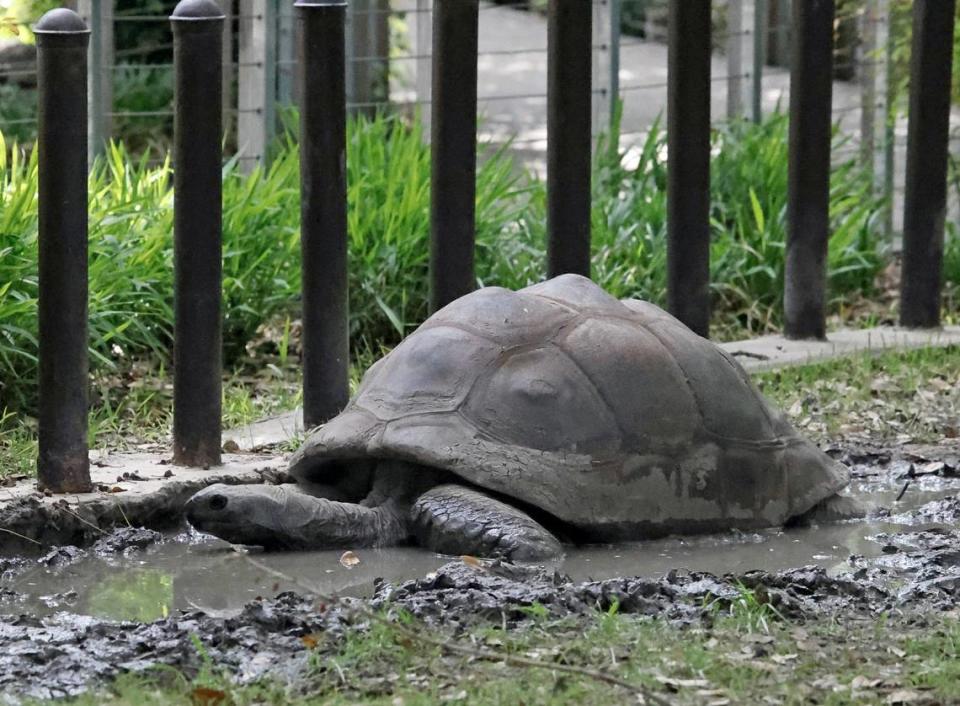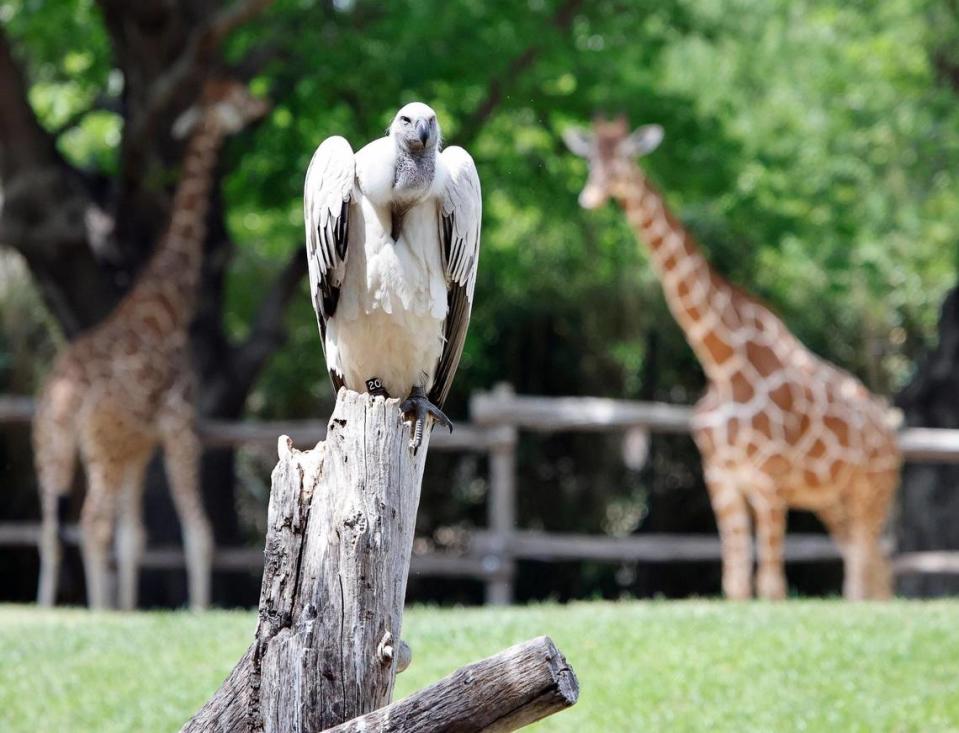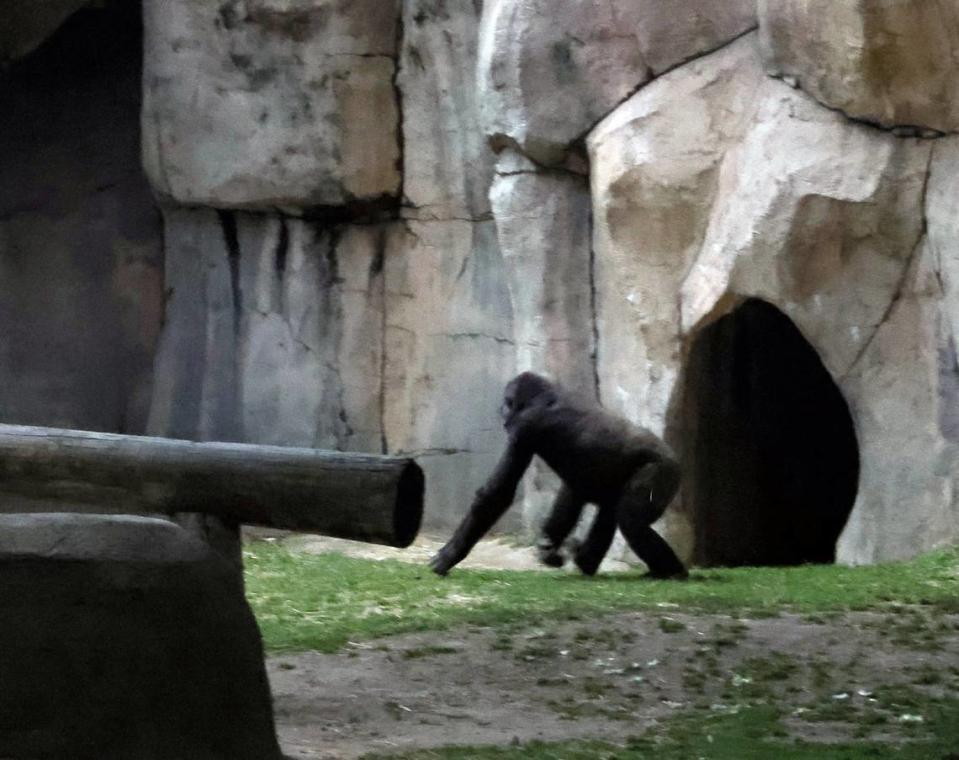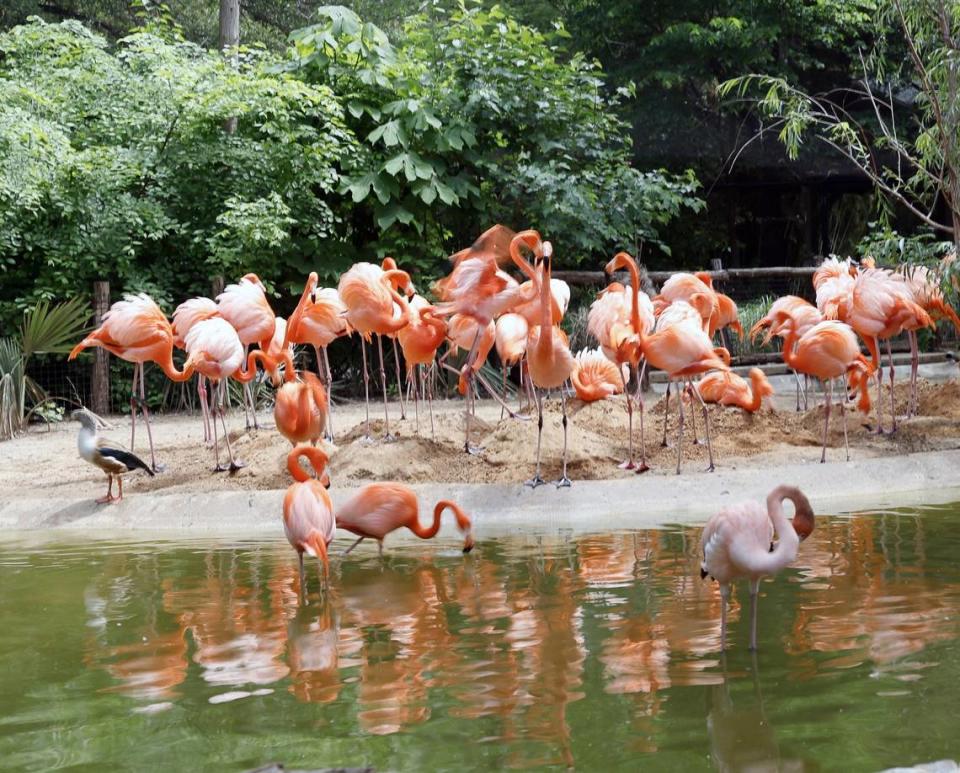Monkey see, monkey do: Did Fort Worth Zoo animals take eclipse cues from humans?
A crazy thing happened during the total solar eclipse Monday at the Fort Worth Zoo.
For the 2 minutes and 33 seconds that the midday sun in North Texas was completely shrouded by the moon — raining darkness and turning day into dusk — the animals took their cues from the humans.
Go figure. Monkey see, monkey do. Indeed.
“The number one thing we drew from our 2017 and now our 2024 research, is that animals react accordingly to human response,” Adam Hartstone-Rose, professor of biology at N.C. State University, told the Star Telegram. “If humans respond calm and quietly, the animals seem to do the same.”
Dozens of observers — from high school students to doctoral candidates — fanned out across the many enclosures and habitats at the zoo during the eclipse earlier this week. Many of them were with Hartstone-Rose during the 2017 eclipse, with pen and pad, jotting down notes at the Riverbanks Zoo in Columbia, South Carolina. The study compared results from this year’s event to the one from seven years ago. The observers’ conclusions this year pretty much lined up with their previous observations: The zoo animals either think it’s time for bed, time to freak out or time to seek out a little love.
“This reigned true in Fort Worth as there were little crowds or people and minimal noise during the eclipse,”Hartstone-Rose said.
⚡ More trending stories:
→ There’s no ‘better place’ to see April 8 total solar eclipse than in this tiny Texas town.
→In Texas, set your thermostat at 80 when it's 100 degrees, expert says.
→Groceries at this national chain are the cheapest, study finds.
In South Carolina back in 2017, the zoo was packed with visitors, giving the animals more to mimic. They recorded more anxious behaviors then, the professor recalled. Fort Worth was a little more subdued with thinner crowds.
Two things stood out in the data from 2017: First, the most notable reactions came from the humans, and second, the Tortoises went into mating mode.

In Fort Worth, the most common observations was that many species thought it was time for bed. But Hartstone-Rose said there was a noticeable difference in reactions from animals behind glass enclosures compared to those without the partition.
It seems the animals who could not hear the humans behind the glass barely registered a reaction.
A video from the Dallas Zoo, which was significantly more crowded than Fort Worth, seems to prove Hartstone-Rose’s point. The footage shows giraffes and zebra rampaging in their pens before the eclipse — a reaction Hartstone-Rose attributes to human anticipation of the impending eclipse. Once the event was over, the animals reverted to normal behavior.

“I’ve heard crazy theories about birds falling out of the sky and dying during the eclipse,” Hartstone-Rose said. “Those aren’t true.”
What the data shows, according to the professor, is that the birds did what they normally did in the evening, and that is to prepare for sleep.

How animals at the Fort Worth Zoo reacted to the eclipse
A few species did react notably. Here is what they did:
The tortoises, three out of the four piled up against the steel door, wanting to be let in due to the temperature drop during the eclipse. They pushed so hard, it made the steel door bend. The one tortoise who didn’t participate is blind, so he didn’t get the memo.
Saltwater Crocodiles normally do not move much at all, but in totality it took a dip in it’s pond and then walked towards the door for it’s bedtime.
African Pygmy Falcon screeched when the sky turned dark.
Caribbean Flamingoes vocalized and the flamboyance huddled together, seeming to be more anxious.
African Penguins showed no signs of distress. However, the birds asked to be fed dinner as it turned dark, then breakfast once it got light again.
Owls, the nocturnal bird, started flying in circles and clawing at the cage right as the sky was turning dark.
Gorillas prepared for bedtime during the eclipse, then became playfully aggressive with one another.
Lion (female) began at the back exhibit asleep, and as totality came to end she rose and wanted her breakfast.
Ringtail racoon, a nocturnal “desert racoon,” awoke and moved around during totality.
Giraffes were huddled together as far away from zoo guests as they could venture.
Elephants huddled together towards their keeper at back of exhibit, but not at their bedtime door.

An eclipse study program for all to participate
Hartstone-Rose’s research is not confined to zoo inhabitants. As a member of the Solar Eclipse Safari, the professor has access to people on the path of totality who send their lay observations to the group.
From this, he found an obvious conclusion that aligned with his hypothesis: roosters do crow during a solar eclipse. He is still compiling data which he will publish in a research paper, including the observations from around the world.
For now, the monkey see, monkey do theory has proven true.

